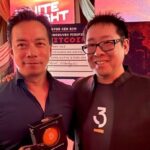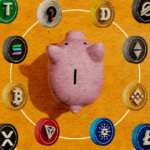A professor of quantum computers at the University of Texas, USA, was called William Creschemer and with his team completed an experiment demonstrating the “unconditional hegemony” of quantum computers.
The expression “unconditional hegemony” refers to a Permanent benefits Quantum machine above the classics.
In other words, for certain tasks, quantum computers are always more efficient than traditional potential computers.
According to researchers, their «results are demonstrable and enduring. There is no future development of classical algorithms You can close this gap ».
Furthermore, they claim that the benefits they have been obtained It cannot be eliminated by future progress With traditional computing.
Did the experiment try to demonstrate its quantum advantage?
The experiment, published on September 19th, was held with 12 qubits (qubits In English, the basic unit of quantum information was constructed from laser controlled ions by Quantinuum Company.
The design was based on the problems of communication complexity, the mathematics branch. Research efficiency in information exchange between two parts.
In the experiment, the researchers split the quantum computer into two parts, which they call “Alice” and “Bob.”
It can be thought of as a riddle game: Alice prepares a letter with a secret message and sends it to Bob. Bob’s job is to decide How to find a hidden message and view the letter to answer.
When this exchange was repeated thousands of times, Alice and Bob had perfected their methods until they had predicted with great accuracy that it would be Bob’s reaction, even before Alice revealed her letter.
According to the report, this dynamic Repeated 10,000 times Improved communication protocols.
The final result showed that classic computers with capacity less than 62 bits did not match Efficiency of this 12-tank machine.
Even at the most advantageous stage, classic systems require 330 bits to perform the same task. It’s almost 30 times the calculation effort To achieve comparable performance.
Ashley Montanaro, a professor of quantum computers at the University of Bristol, commented on the results.
“This is a remarkable scientific discovery that the panorama of ‘quantum advantages’ is wider than what was thought. Unlike most demonstrations of quantum advantages and supremacy, there is no chance that a better classical algorithm will emerge here: it is impossible. ”
Ashley Montanaro, professor of quantum computers at university Bristol.
For Ronald de Wolfe of the Dutch Institute for Mathematics and Computing Sciences, the essay reflects how recent advances in quantum computers can apply mathematical theory, which has evolved for decades.
Briefly, the relevance of this study is that quantum computers demonstrated the performance of classical systems, at least in that particular type of experiment. I couldn’t reach itno matter how much optimized in the future.
This concept of “unconditional supremacy” is in contrast to what was previously referred to as “quantum dominance,” and was sometimes called into question when classic solutions that could match a particular outcome were discovered.
Meanwhile, new evidence reinforces the idea that Quantum Computing opens land where classical machines are optimized. They cannot compete.









